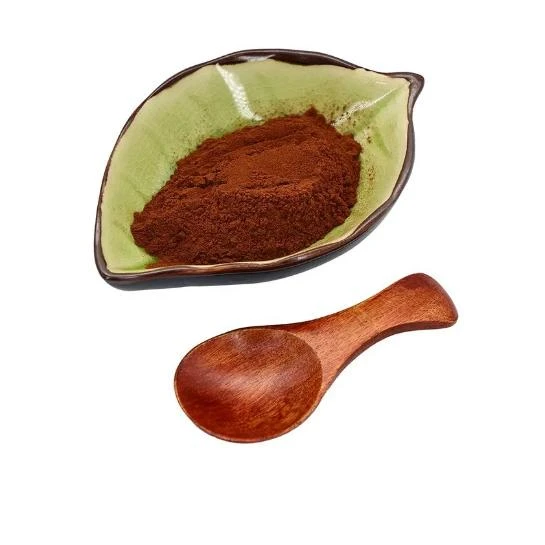Warning: Undefined array key "title" in /home/www/wwwroot/HTML/www.exportstart.com/wp-content/themes/1198/header.php on line 6
Warning: Undefined array key "file" in /home/www/wwwroot/HTML/www.exportstart.com/wp-content/themes/1198/header.php on line 7
Warning: Undefined array key "title" in /home/www/wwwroot/HTML/www.exportstart.com/wp-content/themes/1198/header.php on line 7
Warning: Undefined array key "title" in /home/www/wwwroot/HTML/www.exportstart.com/wp-content/themes/1198/header.php on line 7
- Afrikaans
- Albanian
- Amharic
- Arabic
- Armenian
- Azerbaijani
- Basque
- Belarusian
- Bengali
- Bosnian
- Bulgarian
- Catalan
- Cebuano
- China
- China (Taiwan)
- Corsican
- Croatian
- Czech
- Danish
- Dutch
- English
- Esperanto
- Estonian
- Finnish
- French
- Frisian
- Galician
- Georgian
- German
- Greek
- Gujarati
- Haitian Creole
- hausa
- hawaiian
- Hebrew
- Hindi
- Miao
- Hungarian
- Icelandic
- igbo
- Indonesian
- irish
- Italian
- Japanese
- Javanese
- Kannada
- kazakh
- Khmer
- Rwandese
- Korean
- Kurdish
- Kyrgyz
- Lao
- Latin
- Latvian
- Lithuanian
- Luxembourgish
- Macedonian
- Malgashi
- Malay
- Malayalam
- Maltese
- Maori
- Marathi
- Mongolian
- Myanmar
- Nepali
- Norwegian
- Norwegian
- Occitan
- Pashto
- Persian
- Polish
- Portuguese
- Punjabi
- Romanian
- Russian
- Samoan
- Scottish Gaelic
- Serbian
- Sesotho
- Shona
- Sindhi
- Sinhala
- Slovak
- Slovenian
- Somali
- Spanish
- Sundanese
- Swahili
- Swedish
- Tagalog
- Tajik
- Tamil
- Tatar
- Telugu
- Thai
- Turkish
- Turkmen
- Ukrainian
- Urdu
- Uighur
- Uzbek
- Vietnamese
- Welsh
- Bantu
- Yiddish
- Yoruba
- Zulu
Dec . 09, 2024 17:07 Back to list
Aspartame and Its Phenylalanine Content Explained for Health Awareness
The Significance of Aspartame and Phenylalanine Understanding Their Impact on Health
Aspartame is one of the most popular artificial sweeteners used globally, especially in diet sodas and other sugar-free products. It is approximately 200 times sweeter than sucrose (table sugar) and is prized for its ability to provide sweetness without the calories associated with sugar. However, a significant aspect of aspartame that raises concerns among certain populations is its composition — specifically, the presence of phenylalanine. This article explores the implications of aspartame consumption, the role of phenylalanine, and the potential health impacts for individuals sensitive to this amino acid.
What is Aspartame?
Aspartame is a low-calorie sweetener composed of three components phenylalanine, aspartic acid, and methanol. Upon ingestion, aspartame breaks down into these constituents, which are then absorbed into the body. Phenylalanine is an essential amino acid that plays a crucial role in the synthesis of proteins and neurotransmitters such as dopamine. While phenylalanine is typically harmless to most people, individuals with a genetic disorder known as phenylketonuria (PKU) cannot metabolize it effectively, leading to dangerous levels within the body.
The Link Between Aspartame and Phenylalanine
The presence of phenylalanine in aspartame is the reason for the cautionary labeling that accompanies products containing this sweetener. In many countries, products with aspartame carry a warning for individuals with PKU, advising them to avoid consuming the sweetener due to the potential risk of high phenylalanine levels. For those with PKU, excess phenylalanine can lead to severe health issues, including intellectual disabilities, seizures, and behavioral problems.
Understanding the structure and breakdown of aspartame is critical, especially in the context of modern dietary practices where consumers are increasingly turning to sugar substitutes in a bid to manage weight and minimize sugar intake
.aspartame contains phenylalanine

Health Implications for the General Population
For the general population, aspartame is generally considered safe for consumption by major health authorities, including the U.S. Food and Drug Administration (FDA) and the European Food Safety Authority (EFSA). Numerous studies have evaluated its safety, concluding that moderate consumption poses no significant health risks for most individuals.
However, some people report adverse reactions to aspartame, experiencing headaches, dizziness, and gastrointestinal issues. The scientific community continues to study these claims, yet no direct causal relationship has been firmly established. The debate surrounding aspartame's safety is ongoing, influenced by individual sensitivities and broader consumer health trends that prioritize natural ingredients over synthetic ones.
The Importance of Awareness
Awareness about phenylalanine and aspartame is vital, particularly for individuals with PKU and those who may be sensitive to food additives. Many countries require clear labeling of aspartame on products, making it easier for consumers to make informed choices. For those without PKU, moderation is key when it comes to artificial sweeteners. While they can play a beneficial role in reducing sugar intake and aiding weight management, overconsumption of any additive may lead to unforeseen health issues.
Conclusion
Aspartame serves as a powerful reminder of the complexities that accompany modern dietary choices. While it enables individuals to enjoy sweet flavors without the calorie burden of sugar, it also necessitates an understanding of its components, notably phenylalanine. As consumers become more health-conscious, staying informed and making educated choices is essential. For individuals with specific health conditions like PKU, the implications of consuming products containing aspartame are profound and potentially life-altering. As research continues to evolve, fostering a dialogue about the safety and impact of artificial sweeteners will be crucial in shaping dietary guidelines and consumer awareness in the years to come.
Latest news
-
Certifications for Vegetarian and Xanthan Gum Vegetarian
NewsJun.17,2025
-
Sustainability Trends Reshaping the SLES N70 Market
NewsJun.17,2025
-
Propylene Glycol Use in Vaccines: Balancing Function and Perception
NewsJun.17,2025
-
Petroleum Jelly in Skincare: Balancing Benefits and Backlash
NewsJun.17,2025
-
Energy Price Volatility and Ripple Effect on Caprolactam Markets
NewsJun.17,2025
-
Spectroscopic Techniques for Adipic Acid Molecular Weight
NewsJun.17,2025

